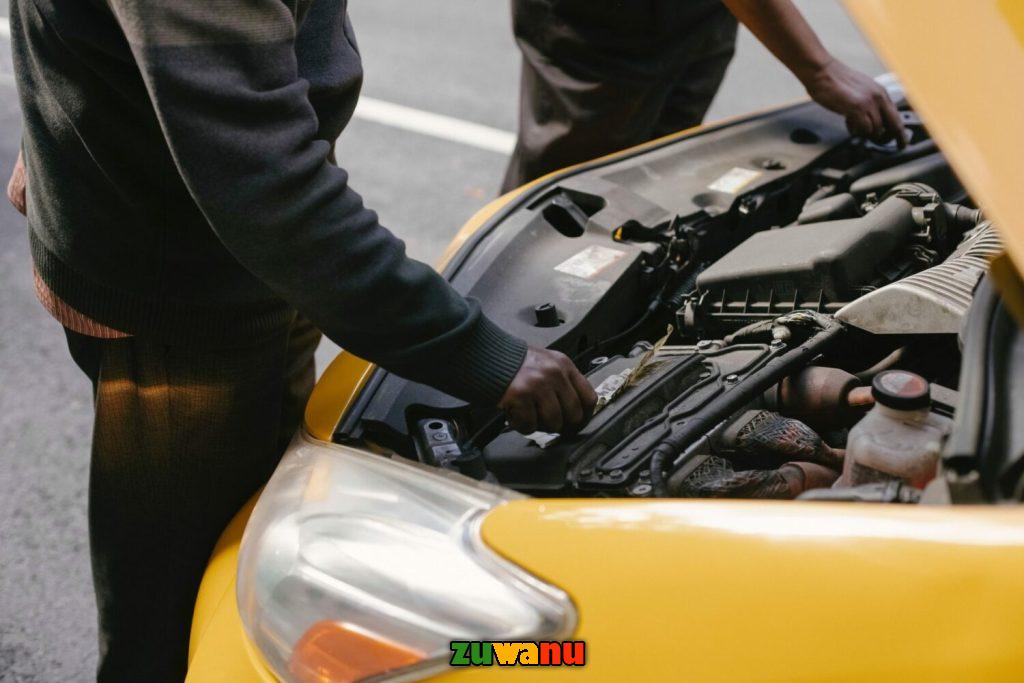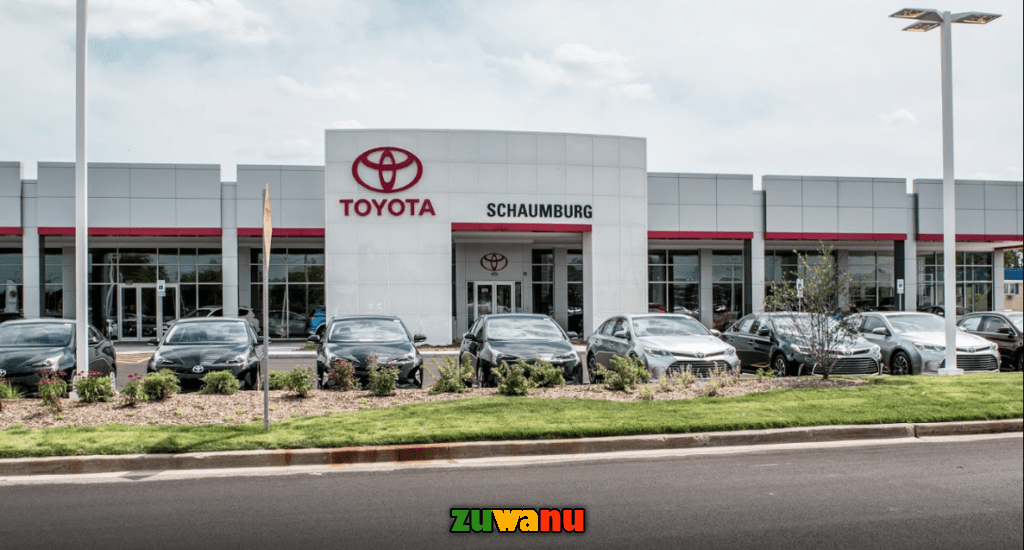10 Common Misconceptions About Buying a Used Car at a Dealership
Table of Contents
Introduction: Buying a Used Car from a dealership

Buying a used car can be a daunting task, and many potential buyers are often swayed by common misconceptions surrounding the process, especially when it comes to purchasing from a dealership. In this article, we will debunk 10 prevalent misconceptions about buying a used car from a dealership, shedding light on the truth behind these myths.
Misconception 1: Dealerships Only Sell Overpriced Cars:
One of the most widespread misconceptions about buying a used car at a dealership is that the prices are inherently inflated. While it’s true that dealerships need to cover their overhead costs, including staff salaries and showroom maintenance, this doesn’t mean that all cars are overpriced. Dealerships often offer a variety of vehicles in different price ranges, and many are willing to negotiate to ensure a fair deal for both parties.
Misconception 2: Used Cars at Dealerships Are Unreliable:
Another common misconception is the belief that used cars at dealerships are inherently unreliable. In reality, reputable dealerships perform thorough inspections and reconditioning processes on their used cars before putting them up for sale. They aim to build trust with customers and maintain a positive reputation, so selling unreliable vehicles would be counterproductive.
Misconception 3: Dealerships Only Want to Make a Sale:
While the ultimate goal of any business is to make a profit, reputable dealerships prioritize customer satisfaction and long-term relationships over a quick sale. They understand the importance of positive reviews and word-of-mouth referrals, so they are often invested in ensuring customers find the right car that suits their needs and budget.
Misconception 4: Private Sellers Offer Better Deals:
Some buyers believe that private sellers offer better deals compared to dealerships. While private sellers might not have the same overhead costs as dealerships, they also lack the infrastructure for rigorous inspections, warranties, and financing options. Dealerships provide a level of security and accountability that can be challenging to find with private sellers.
Misconception 5: All Used Cars Come with Hidden Issues:
It’s a common fear that used cars, especially those at dealerships, hide hidden issues that will surface once the deal is sealed. While it’s essential to conduct due diligence and have any potential purchase inspected by a trusted mechanic, dealerships are increasingly transparent about a vehicle’s history through services like Carfax. Reputable dealers want to build trust and, therefore, provide accurate information about a car’s history.
Misconception 6: Financing at Dealerships Is Always More Expensive:
Many buyers assume that financing through a dealership will result in higher interest rates compared to securing a loan independently. However, dealerships often have relationships with multiple financial institutions, allowing them to offer competitive financing options. Buyers should shop around for the best rates, considering both dealership financing and external options.
Misconception 7: You Can’t Negotiate the Price at a Dealership:
Contrary to popular belief, the price tag on a used car at a dealership is not always fixed. Negotiation is a common and expected part of the car-buying process. Dealerships are often willing to work with buyers to reach a mutually agreeable price. Doing research on the fair market value of a specific make and model can empower buyers to negotiate confidently.
Misconception 8: Dealerships Only Sell Poor Quality Trade-Ins:
Some people assume that the used cars at dealerships are simply unwanted trade-ins that other buyers have discarded. While trade-ins do contribute to a dealership’s used inventory, it’s not the sole source. Many dealerships actively acquire used cars through auctions, lease returns, and other channels to offer a diverse and high-quality selection to potential buyers.
Misconception 9: Extended Warranties Are a Waste of Money:
Extended warranties are often perceived as unnecessary expenses that dealerships push on buyers to increase their profits. However, extended warranties can provide peace of mind by covering unexpected repair costs after the manufacturer’s warranty expires. It’s crucial for buyers to carefully read and understand the terms of any extended warranty, as they can vary significantly.
Misconception 10: Dealerships Aren’t Honest About a Car’s History:
Some buyers are skeptical about the information provided by dealerships regarding a used car’s history. However, reputable dealerships are transparent and often provide vehicle history reports that include details about accidents, title issues, and odometer readings. Buyers are encouraged to verify this information independently and, if necessary, have the vehicle inspected by a third-party mechanic.
becoming a successful online car dealership in 2023 in nigeria
RECAP
Buying a used car at a dealership can be a smart choice, but there are several misconceptions that people often have. Here are seven common misconceptions about buying a used car at a dealership:
- All Used Cars at Dealerships are Overpriced:
- While it’s true that some dealerships may price their used cars higher, it’s not a universal rule. Dealerships often inspect, recondition, and provide warranties for their used cars, which can justify a higher price compared to private sellers.
- Dealerships Only Sell Poor-Quality Cars:
- Many dealerships thoroughly inspect and refurbish used cars before putting them up for sale. Reputable dealerships aim to maintain their reputation and customer satisfaction, so they often ensure the cars they sell are in good condition.
- Private Sellers are Always Cheaper:
- While private sellers may not have the same overhead costs as dealerships, the price difference doesn’t always guarantee a better deal. Dealerships offer financing options, warranties, and sometimes certified pre-owned programs that can add value to the purchase.
- Dealerships Only Want to Make a Sale:
- While dealerships are businesses that aim to make a profit, many reputable ones also prioritize customer satisfaction and long-term relationships. They understand the importance of positive reviews and repeat business, so they are often motivated to provide good service.
- Extended Warranties are a Waste of Money:
- Extended warranties can offer peace of mind and financial protection against unexpected repair costs. While they may not be necessary for everyone, they can be beneficial, especially for those who plan to keep the car for an extended period.
- You Can’t Negotiate the Price at a Dealership:
- Negotiation is a common practice at dealerships. Salespeople expect customers to negotiate, and there is often room for flexibility in the price. Doing research on the car’s market value and being prepared to negotiate can help you secure a better deal.
- Dealerships Only Sell Lemons:
- While it’s crucial to be cautious and conduct thorough research, not all cars sold at dealerships are “lemons” (defective or poorly made cars). Reputable dealerships often conduct inspections and provide vehicle history reports to ensure transparency about the car’s condition.
When buying a used car from a dealership, it’s essential to do your research, ask questions, and consider factors beyond just the price. A reputable dealership with positive reviews and transparent practices can provide a reliable and satisfying car-buying experience.
Conclusion:
In conclusion, buying a used car from a dealership doesn’t have to be a stressful experience fraught with misconceptions. By dispelling these common myths, potential buyers can approach the process with confidence, knowing that reputable dealerships prioritize customer satisfaction, offer transparent information, and provide high-quality used cars. As with any significant purchase, due diligence is crucial, and understanding the realities of buying from a dealership can lead to a positive and satisfying car-buying experience.

